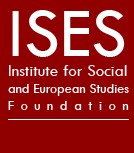Kreatív város, fenntartható vidék – megvalósíthatósági tanulmány:
MISZLIVETZ Ferenc: Európa halmozódó válságai
MISZLIVETZ Ferenc: Az európai konstrukció- Egy új szuverén születése?

David HELD?Mary KALDOR?Danny QUAH: The Hydra-Headed Crisis
Attila PÓK: European History still a challenge
MISZLIVETZ Ferenc: A világrendszer ingája és a Jövőegyetem ? Beszélgetések Immanuel Wallersteinnel
Immanuel Wallerstein a XX. század végének és a XXI. század elejének egyik legeredetibb, legnagyobb hatású és legkonzekvensebb társadalomtudósa. A modern világrendszer történeti és empirikus alapú elméleti modellje már a ?70-es évek közepétől ismertté vált történészek, közgazdászok, szociológusok és politológusok köreiben. Eredetiséggel párosuló logikai következetessége, provokatív, a világgazdaság hosszú távú átalakulásait és a társadalmi-politikai változásokat egymással összefüggésben, újszerűen és világtörténelmi dimenziókban láttató fejtegetései felkorbácsolták a társadalomtudományok állóvizeit.
Wallerstein gondolatai több mint három évtized távlatából is frissek, eredetiek és továbbgondolásra késztetőek. Bár sokszor kísérelték meg a társadalomtudományok (és az ezek körébe tartozó közgazdaság-tudomány) főáramának képviselői elfelejteni és idejét múlttá nyilvánítani, az általa konzekvensen, mindenre kiterjedően képviselt szemlélet és gondolkodásmód újra és újra utat tör magának. Különösen áll ez a mostani komplex és sokoldalú, „hidrafejű” válság idején. A gazdag életmű tehát egyfolytában gyarapszik, miközben aktualitása is fokozódik. Immanuel Wallerstein idén szeptemberben lesz 80 éves. Ez a kötet tisztelgés a tudós és aktivista eddigi életműve előtt.
This essay investigates how European (Western and Central European) federalist political thinkers, believing in the idea of a peaceful world federation, developed personalism, multilevelism, and subsidiarity as means of protecting diversity in Europe during the 19th and 20th century, in opposition to anti-federalist conservative power policies and classical liberal capitalist market economy expansion. It emphasises the role of József Eötvös who rethought the ideas of Tocqueville and Proudhon, and can be regarded as the first ?manager of diversity” in Europe. The lecture also presents how the Pan-European Movement elaborated the federalist ideas on personalist federalism and multilevelism. It also deals with European integration as manager of diversity: more precisely it investigates how the EU, as an intergovernmental and supranational new regional union of states based on multilevelism and subsidiarity, protects diversity (?unity in diversity”), and how this can influence new regionalism in the world. Conclusion: personalism, subsidiarity and multilevelism can protect diversity world-wide.
Murat GÜL: The ‘German Question’ A Democratic and Peaceful solution
The central geographical orientation of Germany in Europe has vested new responsibilities to the country for the future development of the continent. Moreover, Germany as the most TheGermanQuestion.JPGpowerful state in the middle of Europe has started to play a crucial role (with other big powers of the world) in the execution and reconstruction of international politics. The construction of the ?United States of Europe? within which Germany ?should? play the leading role and realize ?Europeanization of Germany? have been supported by the German foreign policy-makers. In addition to this intra-integration in Western Europe, integration of Eastern and Western Europe has been a primary foreign policy objective for the German administrations. With this objective, responsibility and her huge economic and political capabilities, Germany has been considered as one of the ?engines? of European integration, probably the most important one.
Jody P. JENSEN: Whose rules? Governing globalization in a Multi-Stakeholder World
The period we live in has been characterized as the end of history, empire, the nation state, neo-liberalism, and the end of the world system. Endings necessitate new beginnings. The purpose of this study is to illuminate what directions to expect the world to move in considering the complexity, increasing interdependence and rapid change that has become part of our lives.
Jody JENSEN and Ferenc MISZLIVETZ: The languages of civil society: Europe and beyond
Ferenc MISZLIVETZ: Democracy and civil society: Outlines of a new paradigm
Ferenc MISZLIVETZ: The birth of a new sovereign
Ferenc MISZLIVETZ: The crisis of European construction and the need for a European civil society
Ferenc MISZLIVETZ: The European civil society discourse
Ferenc MISZLIVETZ: The future of Europe: Democracy, civil society and enlargement
Ferenc MISZLIVETZ: The Tunnel at the end of the light: the crisis of transition in Hungary
Ferenc MISZLIVETZ: What happened to you, Hungary?
Ferenc MISZLIVETZ: Why should we reinvent Central Europe?
